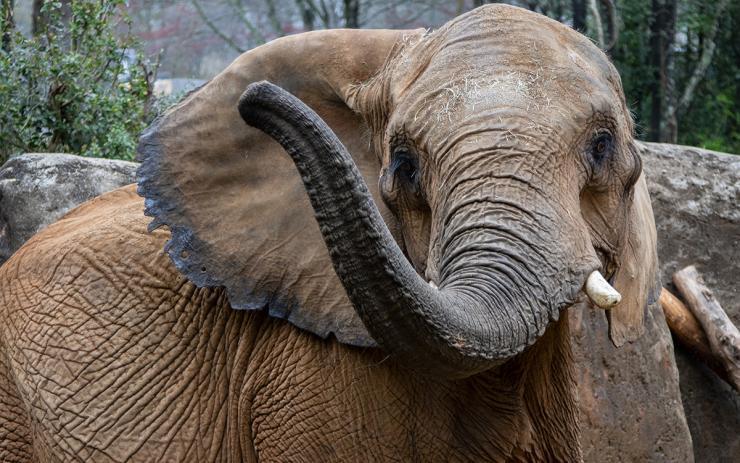Skin: An Additional Tool for the Versatile Elephant Trunk
Jul 18, 2022 — Atlanta, GA

An African savanna elephant (Courtesy: Andrew Schulz/Zoo Atlanta)
A new study from the Georgia Institute of Technology suggests that an elephant’s muscles aren’t the only way it stretches its trunk — its folded skin also plays an important role. The combination of muscle and skin gives the animal the versatility to grab fragile vegetation and rip apart tree trunks.
The research, in collaboration with Zoo Atlanta, finds that an elephant’s skin doesn’t uniformly stretch. The top of the trunk is more flexible than the bottom, and the two sections begin to diverge when an elephant reaches more than 10%. When stretching for food or objects, the dorsal section of the trunk slides further forward.
The findings could improve robotics, which today are typically built for either great strength or flexibility. Unlike an elephant’s trunk, the machines can’t do both.
Jason Maderer
College of Engineering
maderer@gatech.edu




